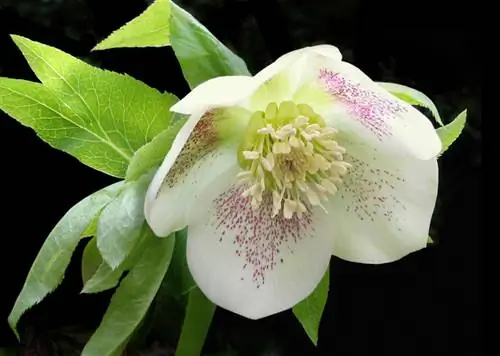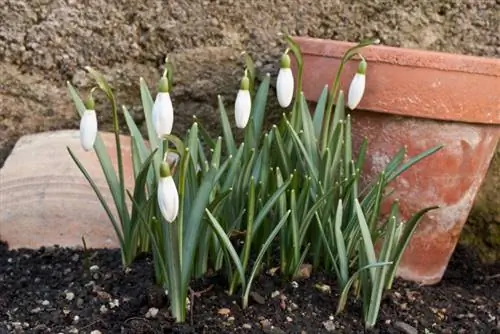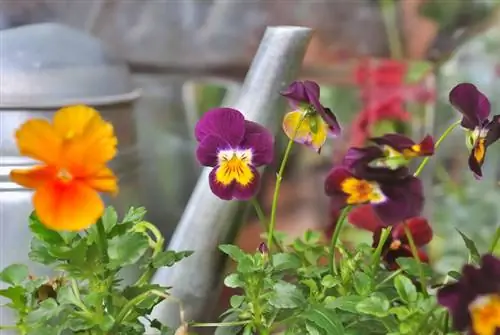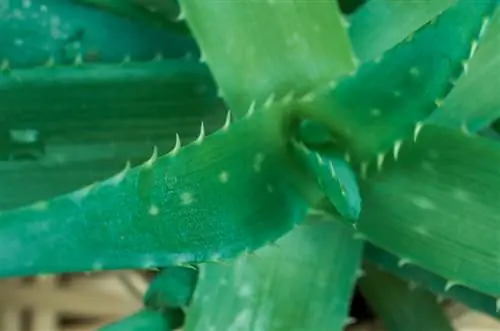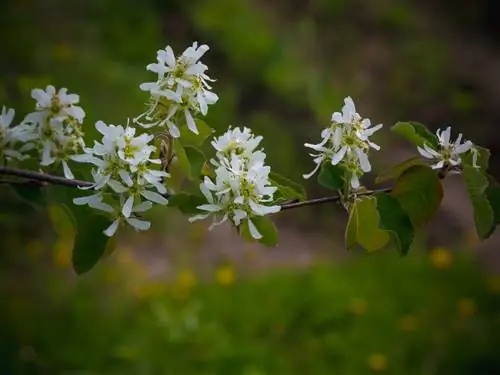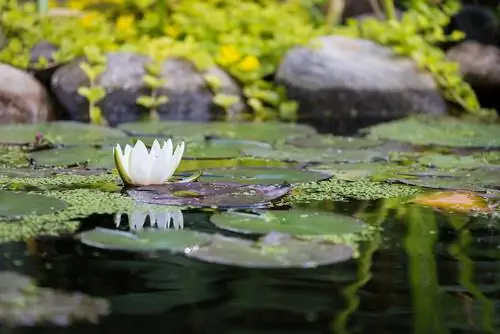- Author admin leonars@hobbygardeners.com.
- Public 2023-12-16 16:46.
- Last modified 2025-01-23 11:20.
Lendar roses are among the easiest spring bloomers in the garden. They only need a little water and fertilizing should be avoided altogether. It is better to mulch the soil around the perennials. This is how you supply the spring rose with important nutrients.
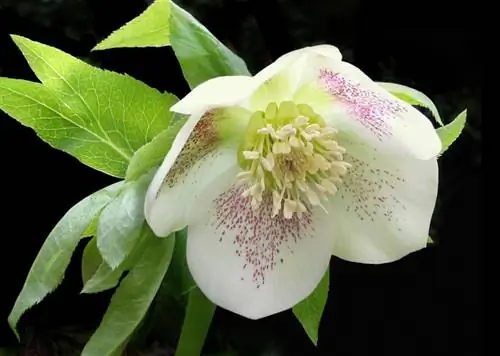
How should you fertilize spring roses?
Lenzenroses do not require any additional fertilizer. Instead, it is recommended to mulch the soil with mature compost, leaves and straw. This provides the plants with nutrients and keeps the soil moisture constant. Liquid fertilizer should be avoided as it does not reach the roots and favors neighboring plants.
Lentrose roses need little care
Once the spring rose has settled in properly, it needs almost no care. It forms long roots with which it supplies itself with water and nutrients. If it is left where it is, it will be many years old.
Additional fertilizer applications are not necessary, especially if you have improved the soil with sufficiently mature compost before planting. In the following years, an annually renewed layer of mulch is completely sufficient.
Make sure that you do not chop up the soil between the lentil rose bushes when pulling weeds so as not to damage the roots above. If the plant has become too large, dig it up in spring and divide the perennial with a spade.
Mulching instead of fertilizing
In order to provide the Lentenrose with sufficient nutrients, you should mulch the plant with rottable materials in the fall. Suitable are:
- ripe compost soil
- Leaf layer
- Straw
A combination of compost and leaves is ideal. First, a layer of compost is spread around the plants. The ground is then covered with a thin layer of leaves.
Through mulching, soil moisture remains constant. Weeds cannot germinate. The mulching material decomposes over the course of the year, releasing nutrients that penetrate the soil. This means that the nutrient supply for the coming year is already secured.
Do not use liquid fertilizers
Giving liquid fertilizer is not recommended for spring roses. As a rule, the fertilizer does not even reach the roots that reach deep into the soil. Instead, it favors the plants growing nearby, which harass the spring rose and overgrow it over time.
Tip
Lenbore roses, like all hellebore species, are poisonous in all parts of the plant. Since the plant shrinks in summer, the risk of poisoning is not very high. Gloves should be worn when caring for perennials in spring and autumn.

